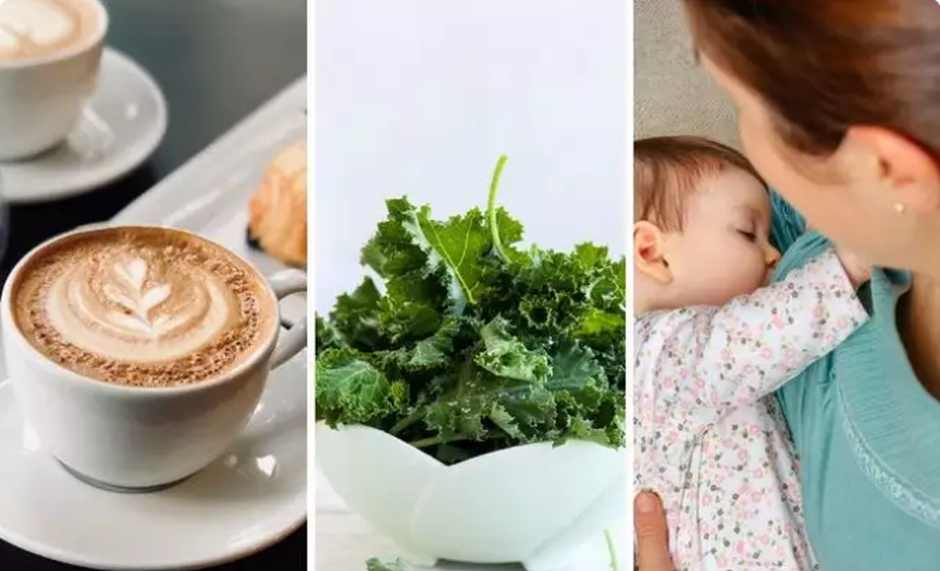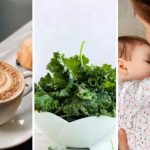A new UK study found that consumption of coffee and other healthy foods reduces the risk of getting Covid-19

Is there nothing coffee can’t do? A new study from the United Kingdom found that drinking 1 cup of coffee reduces the chance of Covid 19 by 10%. However, drinking 10 cups had no further effect.
While vaccines, therapeutics, wearing masks, practicing social distancing, and following proper hygiene like hand washing play critical roles in combating the deadly covid-19, new research found that our dietary behaviors equally play an important role in reducing the risks of getting covid-19.
A new UK study conducted by a team of researchers from Northwestern University in Chicago found that coffee, breast milk, and kale have the potential to reduce your COVID-19 risk factors. The researchers used data from the UK Biobank as a baseline to study the link between dietary behaviors from 2006 to 2010 and COVID-19 cases from March to November 2020 in the same group of participants.
They then study data of 37,988 people between the ages of 40 to 70 years who were tested for covid-19, of which 17 percent tested positive for the virus. They found that certain foods affect the immune system of the people that participated in the study, which was published on June 20, 2021 in the Journal of Multidisciplinary Digital Publishing Institute(MDPI).
Of the many foods used in the study, they found that coffee, vegetables, and breast milk reduced COVID-19 risk by 10 percent, whereas foods like tea, fruits, and red meat made no significant difference. “Our results support the hypothesis that nutritional factors may influence distinct aspects of the immune system, hence susceptibility to COVID-19,” the authors of the study said.
“We considered UKB participants in England with self-reported baseline (2006–2010) data and linked them to Public Health England COVID-19 test results—performed on samples from combined nose/throat swabs, using real time polymerase chain reaction (RT-PCR)—between March and November 2020. Baseline diet factors included breastfed as baby and specific consumption of coffee, tea, oily fish, processed meat, red meat, fruit, and vegetables. Individual COVID-19 exposure was estimated using the UK’s average monthly positive case rate per specific geo-populations.”
Below is the summary of the study.
Results:
“Eligible UKB participants (n = 37,988) were 40 to 70 years of age at baseline; 17% tested positive for COVID-19 by SAR-CoV-2 PCR. After multivariable adjustment, the odds (95% CI) of COVID-19 positivity was 0.90 (0.83, 0.96) when consuming 2–3 cups of coffee/day (vs. <1 cup/day), 0.88 (0.80, 0.98) when consuming vegetables in the third quartile of servings/day (vs. lowest quartile), 1.14 (1.01, 1.29) when consuming fourth quartile servings of processed meats (vs. lowest quartile), and 0.91 (0.85, 0.98) when having been breastfed (vs. not breastfed). Associations were attenuated when further adjusted for COVID-19 exposure, but patterns of associations remained.”
Conclusions:
“In the UK Biobank, consumption of coffee, vegetables, and being breastfed as a baby were favorably associated with incident COVID-19; intake of processed meat was adversely associated. Although these findings warrant independent confirmation, adherence to certain dietary behaviors may be an additional tool to existing COVID-19 protection guidelines to limit the spread of this virus.”
Final Conclusion:
“Our results support the hypothesis that nutritional factors may influence distinct aspects of the immune system, hence susceptibility to COVID-19. Encouraging adherence to certain nutritional behaviors (e.g., increasing vegetable intake and reducing processed meat intake) may be an additional tool to existing COVID-19 protection guidelines to limit the spread of this virus. Nevertheless, our findings warrant confirmation in other populations.”
You can read the entire study on the Multidisciplinary Digital Publishing Institute (MDPI) website.

